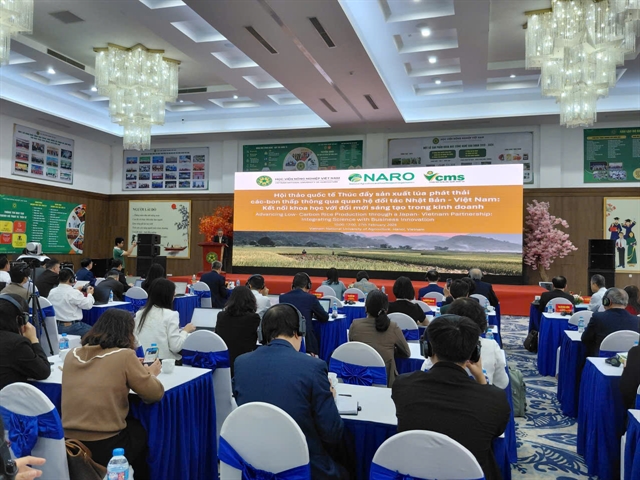 Environment
Environment

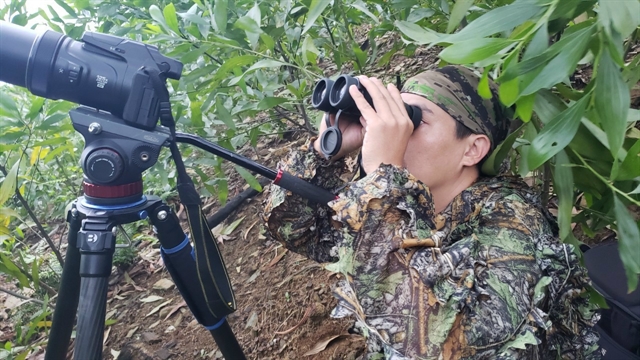
|
| Bùi Văn Tuấn checks the population of primates at a park in central Việt Nam. COVID-19 has negatively impacted biodiversity conservation projects in the region over the past two years. Photo courtesy of Bùi Văn Tuấn |
Công Thành
CENTRAL REGION — Biodiversity conservation projects and forest protection in the central highlands region, over the past two years, have been either delayed or suspended as travel and mass gathering activities are limited by COVID-19 prevention measures.
Despite hosting online meetings and technical guide events, local rangers and conservationists have been unable to visit national parks and nature reserves to collect data and information from field studies among local communities in the region.
Dr Hà Thăng Long, head of the Frankfurt Zoological Society in Việt Nam, who researches langurs, said a number of plans had to be put on hold and no progress reports on wildlife populations at assigned national parks and reserves had been completed.
“Field surveys and forest trips for the supervision of the grey-shanked douc langurs population – one of the world's top 25 critically endangered primates, and on the International Union for Conservation of Nature (IUNC) Red List – were scheduled between May and June of 2021 in Kon Tum Province, but the plan has yet to be carried out,” he said.
Wildlife protection awareness educational programmes among ethnic groups and communities living in buffer zones of the national parks and have also not gone ahead.
“Activities around wildlife awareness education for local communities at the Sơn Trà Nature Reserve-based Nature Dance in Đà Nẵng have been cancelled, and the target of hosting 10,000 visitors in 2021 has failed due to social distancing orders through the first half this year,” he explained.
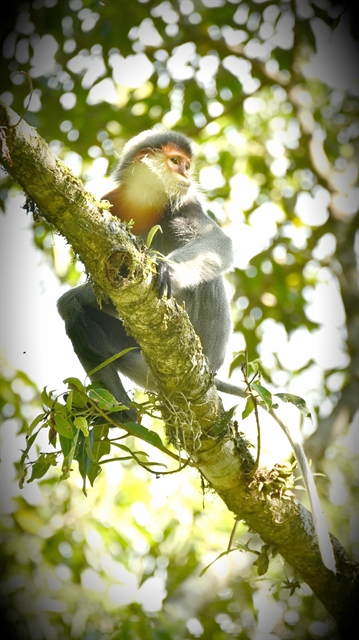
|
| A grey-shanked douc langur (pygathrix cinerea) – one of the world's 25 most critically endangered primates on the International Union for Conservation of Nature (IUNC) Red List -- is snapped in the community-based grey-shanked douc langurs conservation project in Quảng Nam Province. Photo courtesy of Ái Tâm |
Long, who is also the founder of the Centre for Biodiversity Conservation-GreenViet, said distancing orders in provinces in the region have blocked a lot of communication between conservationists and ethnic groups including collecting information about the primates’ population from indigenous communities.
“Only online discussions and meetings have been held or phone conversations or information has been communicated by email in connection with parks and reserves. Practical or technical support for wildlife tracking devices is yet to be taken. The One Million Tree Plantation, an urban project in Hà Nội, Đà Nẵng and HCM City has also come to a halt as social distancing orders have expanded in the three cities.”
The langur researcher said a report on the impact of the coronavirus pandemic on the existence of wildlife species had yet to be released.
He warned that illegal hunting and logging activities at some localities in the central highlands would increase because of the number of unemployed people returning from urban areas, and local communities living around reserves and parks suffered a loss in revenue from community-based tourism and farm produce as a result of the pandemic.
Restrictions
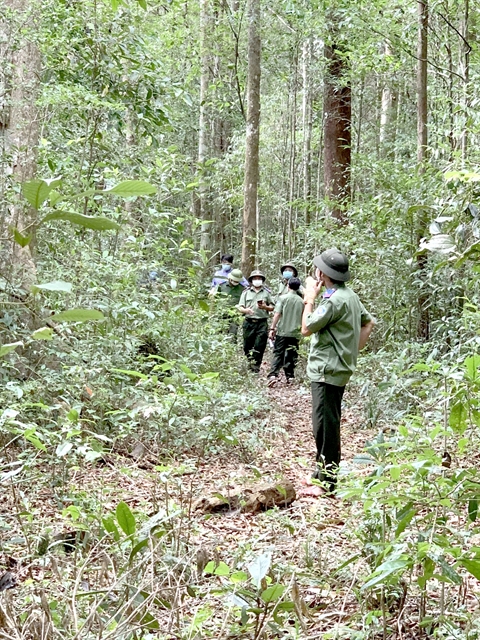
|
| Rangers patrol the forest at Kon Chư Răng Nature Reserve in the central highlands Gia Lai Province. The coronavirus pandemic has limited jungle trips and travels for rangers and forest protection activities . Photo courtesy of Kon Chư Răng Nature Reserve |
Trịnh Viết Ty, director of managing director of Kon Chư Răng Nature reserve in Gia Lai Province, said coronavirus interrupted regular patrol plans, field surveys among international experts and ethnic groups meeting.
“At least five NGO projects have been halted because foreign experts could not get to the site. Related seminars and workshops were also cancelled. Four out of 13 rangers were also home quarantined due to indirect contact with a COVID-19 infection. The remaining members of the reserve had their travel limited as social distancing orders expanded from district to district of Gia Lai Province,” Ty explained.
He said a wildlife supervision project and a forest protection and management project were delayed by one year, while financial funding for the other projects was still yet to be allocated.
“Only 30 per cent of the planned forest patrol has been carried out since early this year due to a manpower shortage. Now one ranger has to cover the job of two at deep jungle stations – from 6km to 15km from the reserve’s administrative centre,” he said.
He blamed the coronavirus which has scared the ethnic Ba Na people who are now avoiding outsiders. The indigenous tribes had effectively locked themselves down to avoid SARS-COV-2 infections, he said.
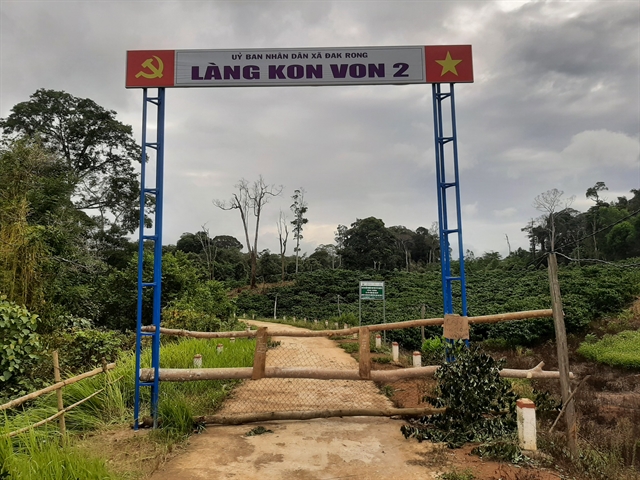
|
| Barriers block the main gate of Kon Von 2 Village in KBang District in Gia Lai Province. The ethnic Ba Na group have closed all entrances to prevent COVID-19 from entering the villages. Photo courtesy of Kon Chư Răng Nature Reserve |
Two communities in particular – Hlam Village in Sơn Lang Commune and Kon Von Village of Đắk Rong Commune in KBang District – have blocked their villages from outsiders.
“Village gates are blocked with fences. Strangers and people from other areas are prohibited from entering. Only resident villagers are allowed,” he said, saying only 50 per cent of the reserve’s staff had been vaccinated.
The director said 50-metre towers and drones had been used to continue monitoring the forest where possible along with biodiversity supervision smartphone apps.
Biologist Bùi Văn Tuấn said lockdown zones at some localities in the region forced his primates supervision plan to be extended to two years instead of six months.
He said transport interruptions also delayed field trips into the jungle from two to three months.
Long also said online meetings and digital applications were needed to promote communication in the case of pandemic interruptions that might occur in the future.
Equipment and financial funding for biodiversity conservation projects should be a priority in the post coronavirus period, he added. VNS




